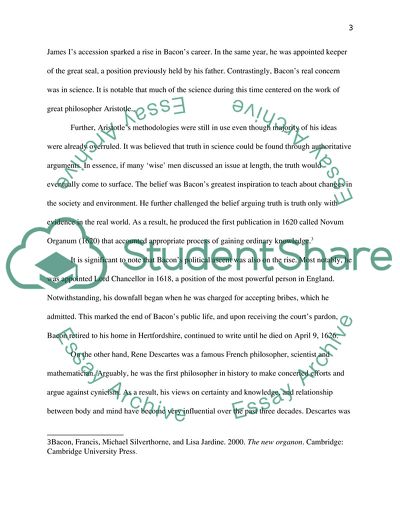Cite this document
(Descartes and Bacon on the Nature of Scientific Method Essay Example | Topics and Well Written Essays - 2250 words, n.d.)
Descartes and Bacon on the Nature of Scientific Method Essay Example | Topics and Well Written Essays - 2250 words. https://studentshare.org/science/1864506-rene-descartes-and-farcis-bacon-on-the-scientfic-method
Descartes and Bacon on the Nature of Scientific Method Essay Example | Topics and Well Written Essays - 2250 words. https://studentshare.org/science/1864506-rene-descartes-and-farcis-bacon-on-the-scientfic-method
(Descartes and Bacon on the Nature of Scientific Method Essay Example | Topics and Well Written Essays - 2250 Words)
Descartes and Bacon on the Nature of Scientific Method Essay Example | Topics and Well Written Essays - 2250 Words. https://studentshare.org/science/1864506-rene-descartes-and-farcis-bacon-on-the-scientfic-method.
Descartes and Bacon on the Nature of Scientific Method Essay Example | Topics and Well Written Essays - 2250 Words. https://studentshare.org/science/1864506-rene-descartes-and-farcis-bacon-on-the-scientfic-method.
“Descartes and Bacon on the Nature of Scientific Method Essay Example | Topics and Well Written Essays - 2250 Words”. https://studentshare.org/science/1864506-rene-descartes-and-farcis-bacon-on-the-scientfic-method.


